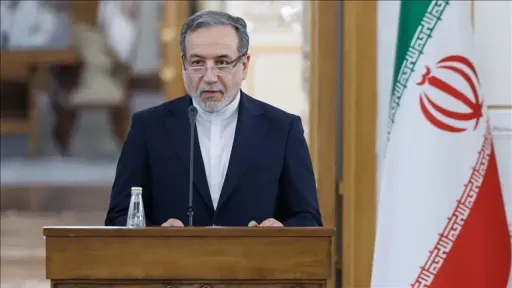ISTANBUL, Turkey — By early 1924, the deposed Caliph Abdul Majid had run out of funds. In exile, he fired his servants, lived modestly, and took to painting and composing music to make ends meet.
“Ex-Caliph Needs Money” read the headline of The New York Times story on April 20 of that year. A 100-word news piece that appeared on the page 124, sandwiched between two articles, one on a lawsuit filed by an American actress and the other on construction of a lighthouse somewhere in the Red Sea.
For centuries, the Ottoman sultans carried the title of the caliph, commanding respect among Muslims around the world.
When the Allies went to war with the Ottoman Empire during World War I, the Indian Muslim soldiers serving the British army mutinied and refused to fight the Turks.
But the expulsion of the Ottomans and separation of religion from state by modern Turkey’s founder Mustafa Kamal Ataturk shocked the prominent Muslim leaders in the Middle East and Asia, who looked up to the caliph as defender of their faith.
From scholars at Cairo’s famous Al Azhar University to mosques in Damascus, there were calls to bring back the caliphate. Istanbul and southeastern Anatolia witnessed uprisings. Loyal clerics refused to accept anyone to replace Abdul Majid as the rightful heir to the caliphate.
But nothing came of the protests, the conferences and the declarations.
In the following years, the dream of the caliphate was overshadowed both by newly-found Turkish secularism and the subsequent rise of Arab nationalism that swept through the Middle East. In South Asia, the post-colonial Muslim majority states such as Pakistan struggled to build their economies.
It was under these circumstances that Hizb-ut-Tahrir, the Liberation Party, emerged in 1953 with a dream of creating a global caliphate, avowing to replace secular or quasi-Islamic governments in Muslim countries, which they believed were run by the "Western puppets."
Eventually, Hizb-ut-Tahrir or Hizb, as it is commonly known, spread over 40 countries, causing discomfort to many Muslim leaders, from Egypt’s Hosni Mubarak and Pakistan’s Pervez Musharraf to Islam Karimov of Uzbekistan.
Hizb doesn’t use violence to further its ideas. They no longer believe in contesting democratic elections either.
Instead, it wants to seize power by instigating uprisings.
As a result, it has been outlawed in many Muslim-majority countries. In the recent past, Indonesia proscribed it in July.
At the same time, Hizb is free to operate in Western countries such as the UK and Australia, where its leaders are allowed to function freely to export its ideology.
“It’s not like Muslim governments are scared of Hizb," Dr Nawab Osman, a researcher at Singapore-based S Rajaratnam School of International Studies (RSIS), told TRT World.
"I think Hizb has become an easy whipping boy, mainly because it is considered a foreign organisation.”
Its secretive nature — hiding the location of its central leadership, not disclosing its membership, and efforts to infiltrate state institutions such as the military — brings it under more scrutiny, experts say.
Many Islamic movements have propagated a global Muslim rule. But few have been as covert and sophisticated in cultivating support as Hizb. To prefer ideology over mass following is one of the basic tenets of the movement.
Ideology first
“We want to discard these rulers to the dustbin of history,” retorted Imran Waheed, a Hizb spokesman, in an interview in 2007 with the BBC's HardTalk.
Waheed said the leaders of Libya, Egypt and Pakistan were “Western stooges,” who have cracked down on Hizb, and that they don’t deserve to rule.
The programme’s host, Tim Sebastian, asked him whether Hizb’s refusal to contest elections came out of its fear of losing it. “In democracy, and in Western capitalism, man is who decides what is right and wrong,” Waheed responded.
“In Islam we believe our creator Allah has decided what is right and wrong.”
This kind of rhetoric is central to Hizb's ideas and is shaped by the doctrines of Sheikh Taqiuddin al Nabhani, its founder.
Taqiuddin was born in 1909 in the Haifa district of Palestine, where the Israeli occupation deeply affected him in later years.
Raised in a religious household of Islamic scholars, he was particularly close to his maternal grandfather Yusuf al Nabhani, who served as a judge in several Ottoman courts, writes Reza Pankhurst, author of the book 'Hizb-ut-Tahrir: The Untold Story of the Liberation Party.'
Pankhurst told TRT World that contrary to common belief, al Nabhani was never part of the Muslim Brotherhood, the other pan-Islamic political group.
Hizb made Jordan its base but, unlike the Muslim Brotherhood, it didn’t accept the Jordanian monarchy — an audacious stance that would force its leaders, including Taqiuddin, into exile.
Hizb, Pankhurst said, wasn’t always so secretive.
“The group has consistently tried to operate openly — it notified the Jordanian government in 1952 and announced its formation openly in 1953. It did the same in Lebanon in 1950 and Iraq in 1960.”
It also ran in elections twice in Jordan and Lebanon. But only once was a Hizb representative able to get elected to the Jordanian parliament - until he was expelled in 1959.
“At the turn of 1959-60, these countries began to ban the group, arrest and in some cases torture its members. This naturally meant the group had to operate more secretively since then,” says Pankhurst.
Its influence, however, waned after the crackdown, and people began to see its ideology as irrelevant.
In the Middle East, the attitude toward religion and nationality was changing, Pankhurst wrote in his other book, 'The Inevitable Caliphate.'
The feeling of Arab nationalism was running strong and the anti-imperial struggle was perceived to be more important than fighting for a pan-Islamic statehood.
For instance, Hizb faced criticism for accusing former Egyptian president Gamal Abdel Nasser of being an American agent, distributing leaflets to that effect. In the 1960s, Nasser was a hero to the people of Lebanon and Iraq; both the countries were going through postcolonial political transitions.
“As a result of this unpopular stance, the Hizb failed to gain any supporters for years while simultaneously it lost 75 percent of its own membership,” wrote Pankhurst.
But Taqiuddin insisted on holding on to the group’s fundamental ideas, even if that meant losing support.
“If the masses and the ideology come into conflict, it is imperative for the Hizb members to adhere to the ideology alone,” Taqiuddin said, "even though the Hizb members would be subjected to the Ummah’s resentment, for this negative feeling would be temporary.”
Taqiuddin passed away in 1977. With him gone, the struggle for a global caliphate receded further — at least for a while.
Caught in the war on terror
“If ever there is a caliph, it’s going to be me,” a young Pakistani journalist said this in jest to Hizb members who had been trying to woo him for weeks. But they weren’t offended. Instead, they laughed off the whole incident.
The Hizb is soft in its approach. Its members don’t necessarily wear skullcaps or sport long beards or have pants folded above their ankles, a common practice among observant Muslims.
“We noticed Hizb in Pakistan after 9/11, probably in 2002,” says Amir Zia, the editor-in-chief of the Karachi-based Bol Media Group. “The backbone of the Hizb was comprised of children of the expatriates. They were qualified bankers, engineers.”
A particular focus on educated elite is key to Hizb’s philosophy.
“We don't believe in a mass following. If only a handful of doctors, lawyers, professors, journalists and army officers stand with us, we can bring down any regime,” a Hizb member told TRT World.
They distributed pamphlets outside mosques and public universities and organised small study circles. They pursued professionals in healthcare, bureaucracy and military, viewing them as potential recruits.
When they visited journalists or lawyers or bureaucrats, they came sporting trimmed beards and broad smiles.
They spoke a mix of English and Urdu, explaining the meaning of Islam and Sharia and advocating for the caliphate, calmly and eloquently.
“They used to talk with finesse, their political diction was modern, and I don’t remember them discussing violence at any point,” Zia said.
After remaining on the fringes, Hizb started to make its presence felt in the mid-1990s across the Muslim-majority Central Asian states. At the same time, it emerged in Indonesia and Pakistan.
In Uzbekistan, the government launched a crackdown against the group in the early 2000s. The country's President Islam Karimov accused its members of carrying out bombings in Tashkent in 2004 at the US and Israeli embassies.
‘‘[The terrorists] base their ideas on Hizb ut-Tahrir’s teaching ... Hizb ut-Tahrir made the biggest contribution to that terror,” Karimov said.
Hizb was also blamed for backing a civil uprising in Uzbekistan's Andijon city, a regional capital in the country's east, where the government forces massacred at least 700 people.
But experts who study Islamic movements, such as Dr Emmanuel Karagiannis, don't agree with Karimov’s explanation.
“It appears that there is no evidence connecting the group with terrorist attacks in Central Asia and this is why it was not placed by the US government on the list of terrorist organisations in the wake of the September 11 attacks,” writesDr Karagiannis.
While Hizb has skilfully avoided a ban in the UK, it hasn’t been lucky in other European countries. Germany outlawed the group in 2003, after accusing it of spreading anti-semitic propaganda.
That same year, the Russian Supreme Court banned Hizb, declaring it a terrorist organisation. Around a dozen countries, including Saudi Arabia, Egypt, Turkey, Pakistan and Bangladesh, have also proscribed it.
“Who need the masses? We seek the elite”
Hizb also continuously tries to influence military and government officers, something that has made it particularly annoying for some governments.
In Pakistan, the government of former President General Musharraf moved swiftly to ban Hizb in 2003, after some army officers were found to have links with the organisation.
That restriction didn’t keep Hizb from moving ahead. In 2012, a Pakistani military court convicted a brigadier and other senior officers of trying to engineer a mutiny.
But Amir Zia, the Pakistani journalist who has covered various religious groups for more than two decades, doesn't consider Hizb a serious threat.
“We know some other groups have tried to win sympathy among army officers. To say they posed any serious threat would be wrong.”
But Amir Rana, an Islamabad-based security analyst, says there is a good reason for the governments of Asian countries to be sceptical of Hizb.
“This group originated in the Middle East. Its members have been groomed in Europe. So when they come to Pakistan or Bangladesh, the governments feel threatened,” he told TRT World.
“They are seen as an external force which has brought some [hidden] agenda with them.”
In Bangladesh, several low-ranking soldiers were arrested in 2011 for plotting a coup against the secular government. They were linked to Hizb, which had been banned there in 2009.
But it was in Indonesia that the party made its biggest gains. It is also there that the government is hell-bent on reversing Hizb’s work.
The bird flu conspiracy
On August 12, 2007, around 100,000 people thronged to a stadium in Jakarta to attend a conference on the caliphate.
The event was Hizb’s largest congregation — an achievement that members refer back to time and again to highlight its ground strength.
But this July, Hizb ran into trouble with the Indonesian government. As blasphemy allegations surfaced against Jakarta’s former Christian governor Basuki Tjahaja, massive demonstrations led by various Islamic groups rocked the country. Tjahaja was sentenced to two years in prison.
Hizb actively took part in that campaign. And soon after, it paid the price. The government banned the group saying its activities were against the state’s secular ideology.
“It acted just like any other non-state actor. They make provocative statements such as the white supremacists do in the US,” Andreas Harsono, a Human Rights Watch (HRW) researcher in Jakarta, told TRT World.
Harsono is critical of the government's ban on Hizb.
“No. It’s not a violent group. As far as HRW is concerned, Hizb has never promoted violence,” Harsono said.
For many experts, the Indonesian government's move to ban the group came as a surprise, especially as they saw Hizb as a mainstream political force in the country. Unlike Pakistan or other countries, where it treads cautiously and remains on a periphery, Hizb in Indonesia was quite visible.
“Its members regularly appeared on programmes on state television during Ramadan,” said the Singapore-based expert Nawab Osman.
Hizb was also able to exercise greater influence over the Indonesian bureaucracy. For instance, the health ministry was completely taken over by the Hizb, said Sidney Jones, director of the Institute for Policy Analysis of Conflict, in a media interview.
Siti Fadilah Supari, the former health minister, who is reportedly close to Hizb, wrote a bookin which she suggested that a US lab could be used to create biological weapons.
She kicked up a controversy in 2008 by refusing to share the bird flu samples with the United Nations. She insisted that the Indonesian government must be informed where the UN wanted to take the samples.
“I don’t know if my virus is going to be used as material for a vaccine or as material for a biological weapon,” she said.
Then-US Defense Secretary Robert Gates called it “the nuttiest idea I’ve ever heard.”
While Hizb has not been directly involved with terrorism, some of its former members, such as Bahrun Naim, have fought for Daesh in Syria.
Jones says disbandment of Hizb could force disgruntled members to join extremist organisations and become an excuse for the radicals.
“One of the people who was happiest with the idea of a ban [on Hizb] was this former Hizb-ut-Tahrir turned ISIS (Daesh) member in Syria, Bahrun Noim,” Jones told Talking Indonesia podcast.
According to Jones, Noim expressed his happiness over the ban and said this would convince the Hizb members to take the alternate path.
"He thinks that Hizb members can't just sit back and dream of a caliphate. They actually have to use violence if they are going to achieve it.”
But for Hizb, the option of taking up arms is not viable, since it would require fomenting a major ideological shift within the organisation.























